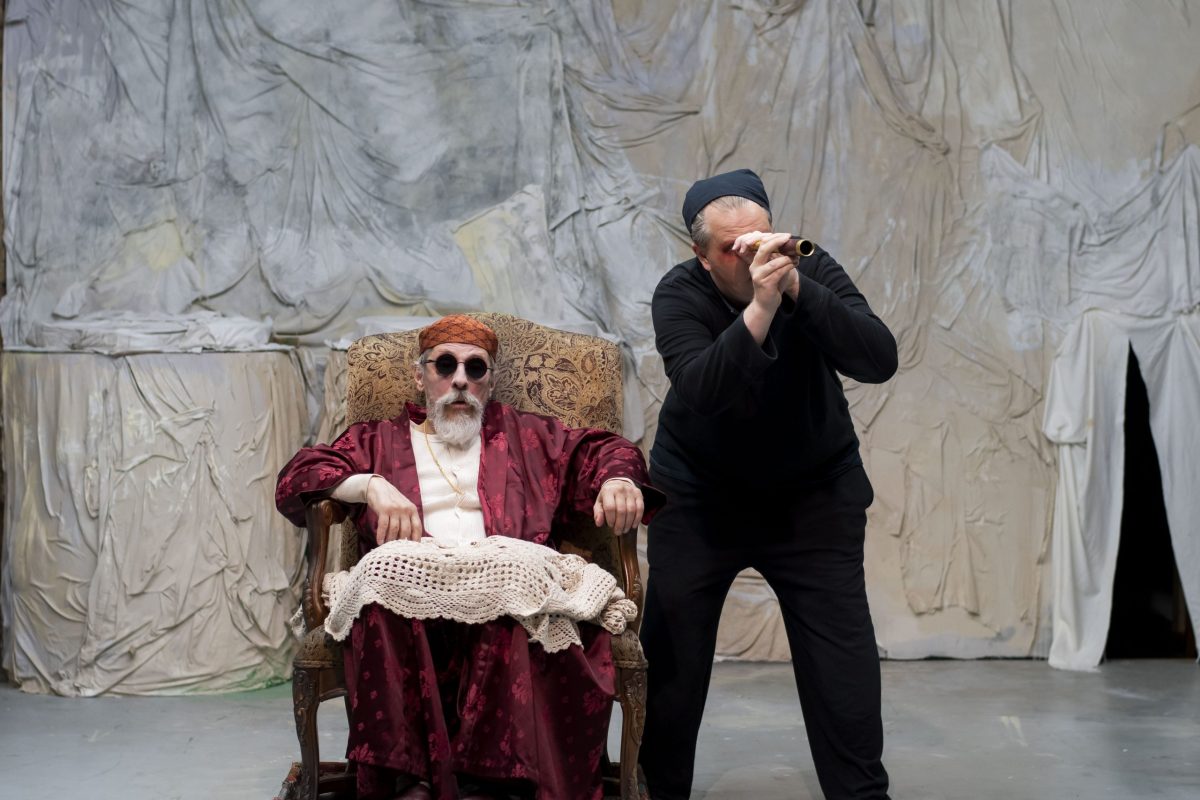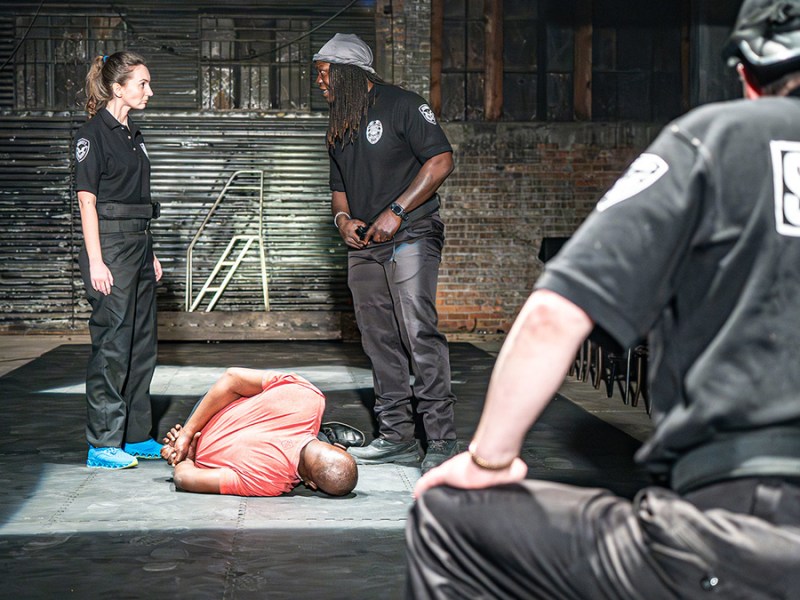You may not know his name, but if you’ve spent any time looking at classical Roman statuary, you’ve probably seen the gorgeous visage of Antinous. The lover of Emperor Hadrian, deified after his (mysterious) death around the year 130, inspired an estimated 2,000 sculptures, of which over a hundred still survive. Antinous also became a symbol of young male beauty for writers such as Oscar Wilde and Marguerite Yourcenar.
Australian playwright David Atfield’s 2014 play, Scandalous Boy, attempts (and largely succeeds) at animating the flesh-and-blood person behind the marble. Literally: the conceit is that a statue of the young man has come to life to tell us the truth about his short but storied life. Staged by Benjamin Mills in its U.S. premiere at tiny Open Space Arts, the piece traces Antinous’s history (he’s Greek, not Roman, he reminds us early on), from his childhood in the ancient region of Bithynia (now part of Turkey), where his mother grooms him to become an eromenus (lover of an older man), to his evolving relationship with Hadrian.
Scandalous Boy
Through 6/28: Fri–Sat 7:30 PM, Sun 6 PM; Open Space Arts, 1411 W. Wilson, openspacearts.org, $30 ($25 seniors/students)
As Antinous, Jose Alexander Martinez possesses the necessary pulchritude (and the close-cropped head of curly hair) to convincingly play the young man who enchanted an emperor. But he’s also adept at playing games of palace intrigue, and at breaking through Hadrian’s walls of machismo with a courageous directness. Jordan Gleaves as the emperor (“He was what you guys would call a bear,” Antinous tells the audience) can be fearsome, but we understand quickly that it’s a cover for his own insecurities. These are exacerbated by the fact that, at least in Atfield’s version, his wife, Sabina (Jinyue Yuna Hu), deliberately aborted his child after he rapes her on their wedding night and was left infertile as a result. This leaves him without an heir and at risk of losing his power.
In addition to Sabina, Hadrian’s court includes former lover Lucius (Antonio Cruz), who delights in telling Antinous that his sell-by date is coming sooner than he thinks, and Antinous’s age-appropriate love interest, Marcellus (Emiliano Flores), who has his own agenda. There is danger in the games that Antinous plays, but also a confounding of the binary top–bottom transactions of gay relationships of the time. (Antinous tops Hadrian, whom he refers to by his given name of Publius, as a sign of how he earns the emperor’s trust and love.)
Intimacy coordinator Christa Retka does a good job of staging the sexual encounters here, though the show is definitely not for younger audiences. Atfield gives the old story of the older man who schools a younger one in the ways of love and sex a welcome 21st-century gloss, without turning Antinous’s story into mere pastiche.










